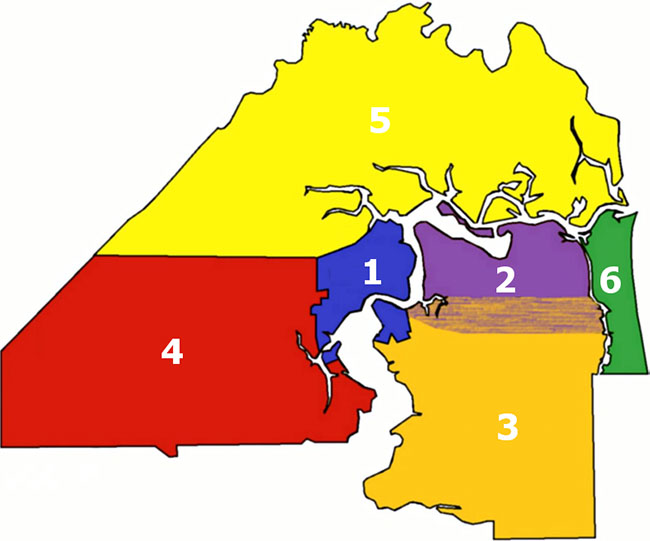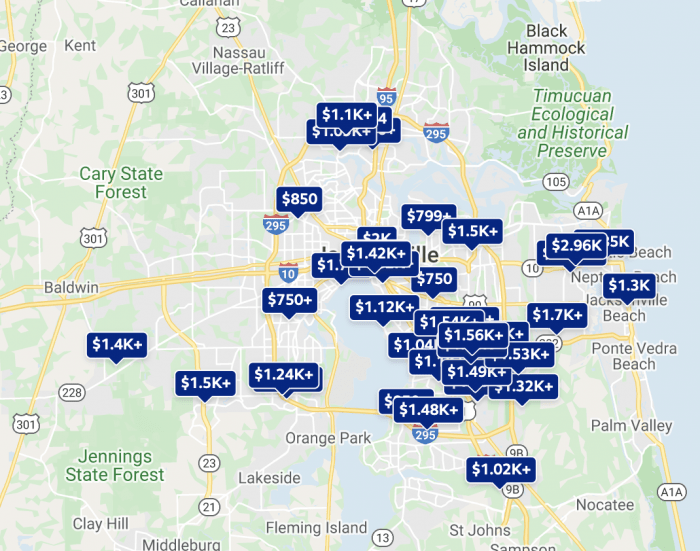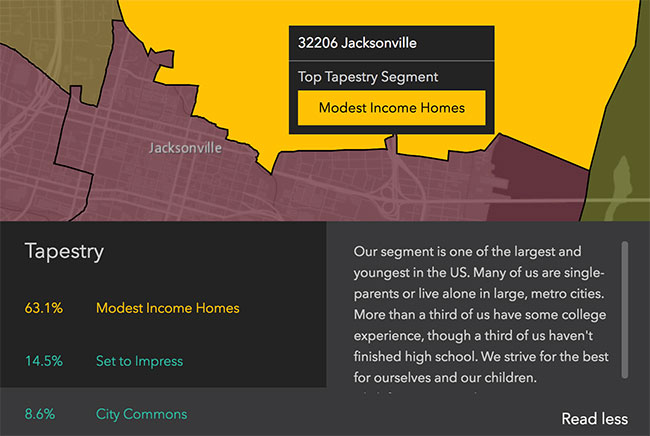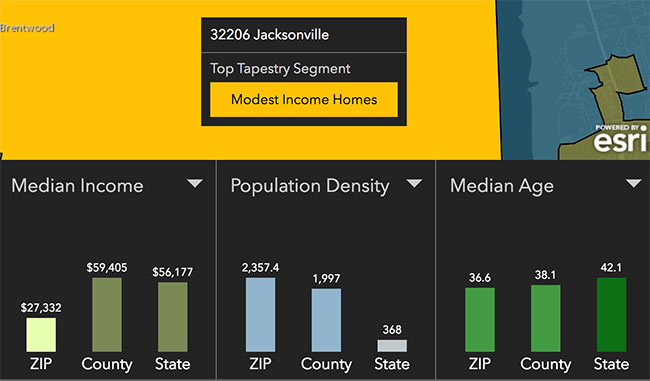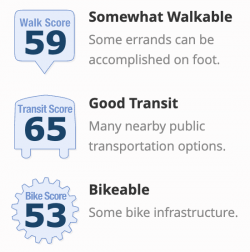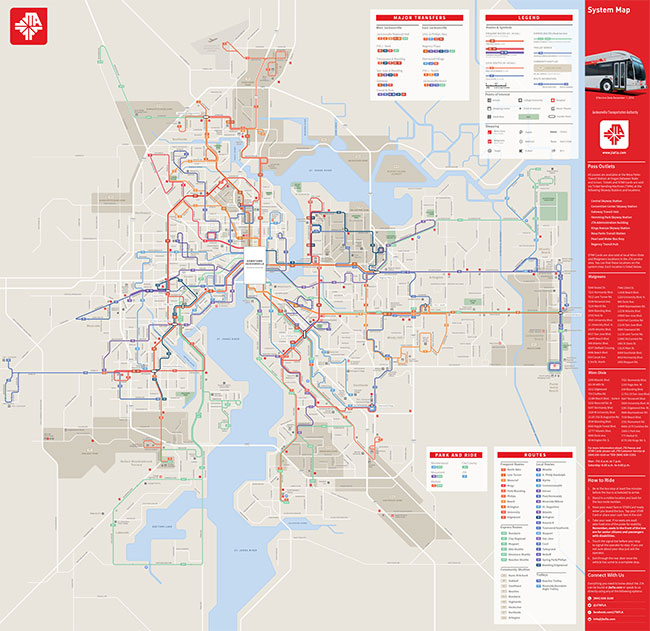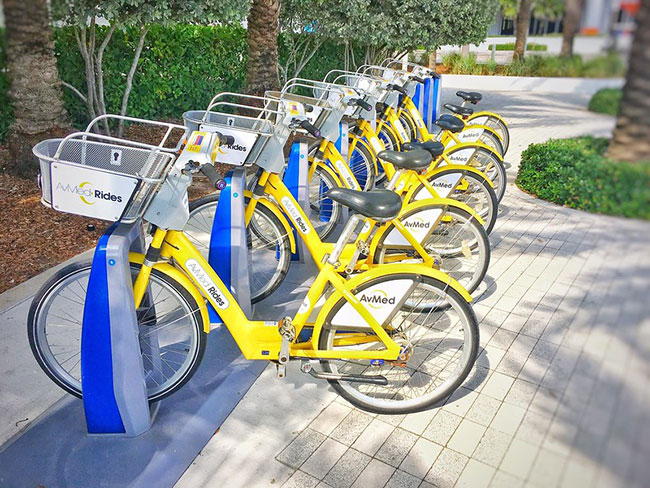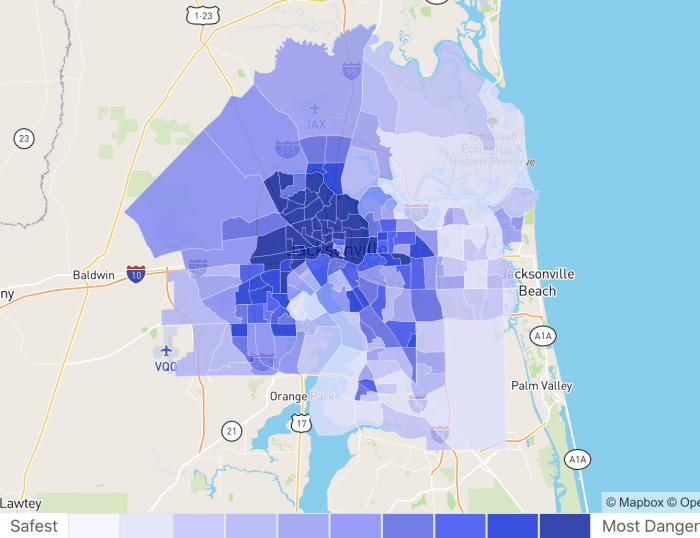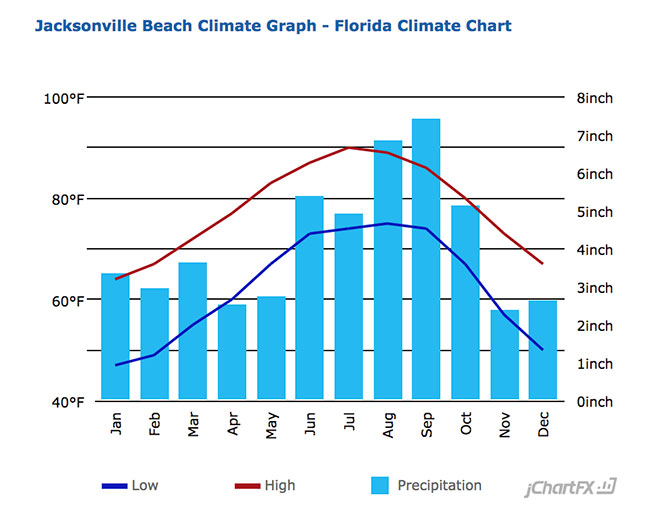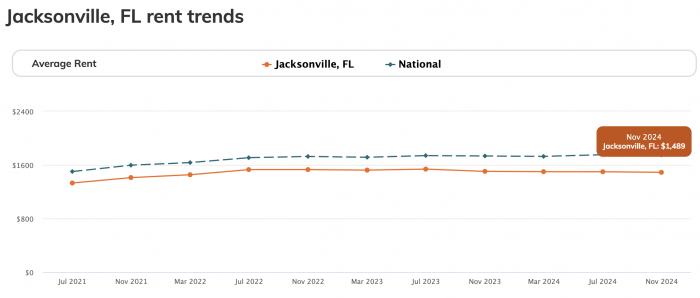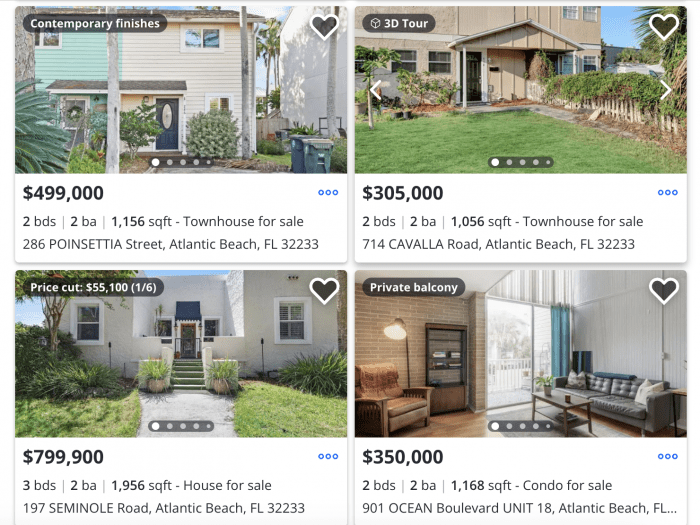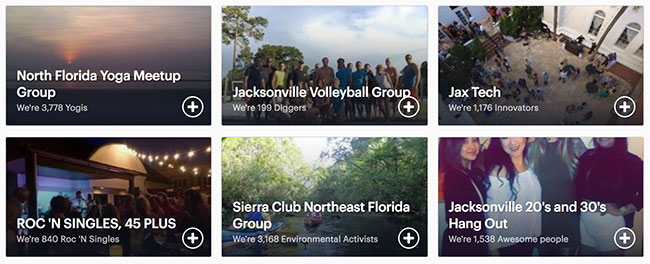Tips on Moving to Jacksonville, FL: Relocation Guide
St. Johns River, Jacksonville Jaguars, Hemming Plaza… If you’re thinking about moving to a city with plenty of beach access, green spaces, and a remarkable restaurant and culture scene, then moving to Jacksonville, Florida may be your best bet. Let’s go over the ins and outs of moving to Jacksonville.
Compared to other major US cities, like San Francisco or Austin, Jacksonville is considered a more affordable option, and is known as one of the best places for families and retirees who want the action of a big city at a lower cost.
A sprawling metropolis in Northeast Florida, Jacksonville boasts year-round sunshine, fun activities like Jax Beach music festivals, and plenty of golf courses, making it a top destination for people seeking to relocate. But moving to this beachside oasis can be overwhelming for an outsider.
To help your move go smoothly, we’ve collected some essential facts about Jacksonville’s neighborhoods, commute, rental options and more to help you prepare for relocating to this popular city.
Everything about relocating to Jacksonville
- How to move to Jacksonville
- Which Jacksonville neighborhoods are most affordable?
- Which neighborhood in Jacksonville is the best fit for me?
- How long is the commute in Jacksonville?
- How’s the walkability, bikeability, and public transportation in Jacksonville?
- How dangerous is Jacksonville?
- Where can I find apartments and houses in Jacksonville?
- How much will it cost to move to Jacksonville?
- Don’t forget, all of these things need updating!
- What’s fun to do in Jacksonville?
And if you’re looking for more info on moving to Jacksonville, check out our Jacksonville move cost guide.
Quick Jacksonville snapshot
- Jacksonville has a population of 997,164, making it the 10th largest city in the United States, according to 2023 US Census Bureau estimates.
- As of early 2025, the average rent in Jacksonville was $1,489 which ranks as the 68th most expensive monthly rent in the US.
- Jacksonville’s cost of living is 5% lower than the statewide average in Florida and 7% lower than the national average.
Before we get too deep into things, have a look at this video showing off some of Jacksonville’s unique scenery.
How to move to Jacksonville
|
|
|
|
|
|
Ready to make the move to Jacksonville? Fortunately, you have plenty of options if you know where to look. You can save some cash by renting a moving truck and going the DIY route, or you can hire professional movers so you don’t have to do any heavy lifting. There’s also a hybrid move option where you pack and load a moving container yourself and the pros transport it for you.
Using our moving cost calculator will help you estimate moving costs and make the best decision for your move.
If you are coming from out of state, be sure to have a look at our state-to-state moving guide for more info and tips.
Parking permits for moving vehicles in Jacksonville
You’ll also want to figure out whether or not you need special permission to park moving vehicles or containers near your house before moving to Jacksonville. Even suburban areas may have restrictions on what you can park in the street or driveway.
The many neighborhoods of Jacksonville
The city of Jacksonville has nearly 500 neighborhoods giving you a lot to choose from. Luckily, they’re broken up into a few general regions.
Although their borders tend to be somewhat vague, the Jacksonville area is typically divided into six sections:
- Downtown
- Arlington
- Southside
- Westside
- Northside
- Jacksonville Beaches
Costs can vary quite a bit between different areas of the city as you can see on the map.
Here’s how the pricing breaks down:
- On the lower end of the rent spectrum, you’ll find places like Fairfield in Arlington, Longbranch in Southside, and Phoenix in Westside, where rents are as low as $772.
- 29th & Chase and Chimney Lakes in Westside rents fall between $911 and $1,395, placing them in the mid-range of Jacksonville’s rental market.
- And with average rents around $1,522 to $1,720, the pricier areas of Jacksonville include Greenland and Mixon Town near Downtown and Windy Hill and Deerwood in Southside.
Figured out where you can afford to live? Now let’s start looking into whether or not you’ll actually like these areas.
Where are people like me living in Jacksonville?
No matter where you decide to live, it’s a good idea to try to make sure you’ll actually like your neighbors. Esri makes finding the right neighborhood a bit easier with their Zip Tapestry tool.
It’s really easy to get a solid overview. Just plug in a Duval County zip code, like 32206, and Esri will display the three largest demographic subsets along with other useful information to pinpoint your target location.
Get educated
Jacksonville is one of many major cities across the US with access to several higher education institutions. With only a 2.5% unemployment rate and a steady job market, it doesn’t hurt to tack on a nearby university to your resume should you need it.
- The University of North Florida received a B+ from the school rating site, Niche. It’s rated highly based on its affordability, campus life, and both its criminal justice and sports management programs. Just a stone’s throw away from Ponte Vedra Beach, it’s a pretty good choice.
- Jacksonville University is situated alongside the St. Johns River in Arlington. JU wins points for its diversity, size, and its nursing program. It gets a B+ rating overall from Niche, and with its NCAA Division I Athletics, it’s great for any college sports lover.
- Florida State College at Jacksonville is your best option if you need to take a couple of classes to finish a degree. Its C rating comes from its lack of campus life, but at a 100% admission rate and multiple campuses around Jacksonville, you can’t complain.
Now let’s look at how you’ll be getting around.
Commuting the Jacksonville sprawl
Jacksonville is a big city of about 875 square miles, which means morning commute times can vary drastically depending on where you live and work.
Generally, Jacksonville residents have an average commute of around 25 minutes to get to work. Compared to other Florida cities like Miami and Orlando, it’s about three minutes faster on average and parking is usually free.
If you need to get to Downtown Jacksonville, you’ll need to know of a few routes – this guide might help you with that.
Getting Around Jacksonville
Jacksonville is a somewhat walkable city, meaning to get groceries, see entertainment or visit museums and galleries, you could walk.
Due largely in part to the sprawling nature of Jacksonville’s layout, it may be a little tough to get where you’re going on foot, but some of your errands may be accomplished this way.
However, a recent study ranked Jacksonville as the 15th most dangerous pedestrian city in the US, although it’s important to note this ranking is an improvement from the seventh spot on the list just a few years ago. Fortunately there are many nearby transportation options.
Jacksonville public transportation is pretty good
The Jacksonville Transportation Authority is one of the most reliable in the state and offers public bus services, ferries, trolleys and a 2.5-mile long, elevated monorail.
While the variety of services offered is fairly extensive, it can be challenging to navigate the city’s sprawling borders and may take some practice.
Jacksonville is bike-friendly
Jacksonville’s bike score is currently coasting at 53, and the city has been adding infrastructure to improve the situation even further.
The recent Pedestrian and Bicycle Master Plan has taken steps to increase both the safety and accessibility of navigating the city by bike or foot.
On top of that, Jacksonville has also begun offering bike sharing in some areas with plans to expand to others. And the current bus system is designed to accommodate bikes as well.
Alright, now that you know how to get around, let’s talk about the areas to avoid.
Jacksonville’s crime rate
Inevitably, the issue of crime is going to come up whenever moving to a new city, so you’ll definitely want to be as well informed as you can be.
According to NeighborhoodScout Jacksonville has a pretty meager crime score of 7 out of 100 (100 represents the least amount of crime).
That doesn’t exactly look great…
But just because an area is “high crime” doesn’t make it “dangerous”. Up in Georgia, you’ll find that Atlanta has a much lower score of 3 with a smaller population. In Jacksonville, only 7.2% of total crime is violent, which means that the crime rate should prompt more caution than fear.
One Reddit user had some decent general advice…
“The farther south and east you are from downtown, the safer you are. The farther north and west you are from downtown, the more dangerous it is. It eventually gets safer though” -KharakIsBurning
Most cities have some dangerous parts so just use your common sense when it comes to staying safe. And with that, let’s find you a place to live!
Finding an apartment in Jacksonville
Your first step in finding an apartment will be determining what amenities you’ll need.
This being Florida, you can expect the summers to get pretty warm, but the winters will tend to be chilly at worst.
You’ll certainly want a place with air conditioning, but heat is probably optional.
With so much A/C being used, you’ll want to factor your average monthly power bill into your budget when apartment hunting.
Searching for Jacksonville apartments
Here are a few of our go-to resources for apartment hunting in and around the greater Jacksonville area.
The state of Jacksonville’s rental market
The rental market in Jacksonville is actually in a pretty good place right now.
As of early 2025, the average rent in Jacksonville sits at $1,489.
Along with that, the most recent vacancy rate data indicates that vacancy is up to 10.5% in Jacksonville, which is higher than the national average.
So yeah, this seems to be a decent time to rent in Jacksonville.
Florida rental law
No matter what the market’s like, you should be as informed about your rights as a tenant as possible to avoid being scammed by a sketchy landlord.
Here are a few laws that renters should keep in mind:
- Required Landlord Disclosures
- Florida Security Deposit Limits and Deadlines
- Tenant Rights to Withhold Rent
- Florida Landlord-Tenant Laws
And if you’re looking to buy, Jacksonville has plenty of suburbs.
Buying a home in Jacksonville
The median home value in Jacksonville in December 2024 was somewhere around $308,644, an increase of 2.9% over the last year.
Jacksonville is very much a seller’s market right now, which means home prices will be higher due to demand.
Atlantic Beach
The town of Atlantic Beach is a vibrant beachfront suburb with plenty to offer outdoor enthusiasts and fans of the arts. Being near the ocean, homes here are definitely more expensive.
Orange Park
Meanwhile, for those looking for something more inland and with more moderately priced homes and good public schools, the Town of Orange Park has plenty of community events to keep residents busy along with a great farmer’s market and a high population of young professionals.
We also recommend exploring the real estate around Neptune Beach and St. Augustine––both beach-lined cities with great access to amenities.
And once you’ve found a place to live, it’s time to figure out how to get everything moved.
Now that you’re ready to make the move to Jacksonville…
Use our moving cost calculator to estimate your moving costs to Jacksonville
Here’s a quick look at some of our guides:
- Moving to Jacksonville Our guide for the cost of moving to Jacksonville
- Cleveland ➡️ Jacksonville Our guide for how much it costs to move from Cleveland
- Washington D.C. ➡️ Jacksonville Our guide for how much it costs to move from D.C.
- California ➡️ Florida Our guide for how much it costs to move from CA to FL
- New York ➡️ Florida Our guide for how much it costs to move from NY to FL
Also, if you are coming from out of state, be sure to have a look at our state-to-state moving guide for more info and tips.
Putting the finishing touches on your Jacksonville move
You’re in the home stretch! Just a few minor details left to establish your residency to become a full-fledged resident of Jacksonville:
- Voter registration: You should really know this by now, but if you haven’t registered to vote in Jacksonville you’ve given up your best chance to have a positive impact on your new community.
- Driver’s license: Getting a Florida driver’s license with your new address on it is fairly critical for a whole bunch of reasons both legally and functionally.
- Out-of-state vehicle registration: And if you have a car with you, you’ll probably need to get a new set of Florida license plates pretty soon after moving.
- Set up your utilities: Make sure you have a plan to cancel, transfer, and set up new utilities quickly and efficiently.
Find your people and make friends: Meetup is a good spot for finding people who share your interests and r/jacksonville is a solid hub of information about goings on around town.
Finding things to do in Jacksonville
When trying to get a grasp on what a city has to offer, the best first step is typically their own tourism website. Visit Jacksonville has a pretty solid overview of the broad strokes of all things entertaining going on in the city.
Living in Jacksonville offers no shortage of outdoor activities. Between its state parks and proximity to the ocean, there’s no shortage of things to do for nature lovers. The city has a ton of great parks and plenty of beaches (duh). If you’re into kayaking, boating, or beaching, you’ve found your place.
Jacksonville also has a thriving culinary scene with plenty of great restaurants like Orsay and Metro Diner. There are also a bunch of really great bars and nightlife options like the beachside outdoor Lemon Bar and The Volstead with their wide selection of craft cocktails.
And don’t miss out on the Jacksonville Zoo and Gardens, the Cummer Museum of Art and Gardens, and the unbeatable Jacksonville Jazz Festival.
Not what you were looking for?
Check out other categories that can help you find the information you need!






